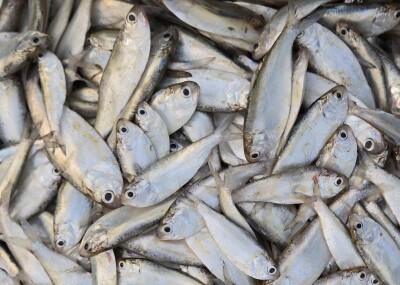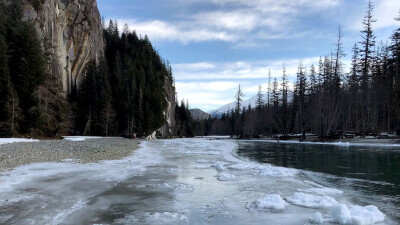Homeland insecurity
Happy New Year.
If you were ashore on Halloween you may have read in the Oct. 31 edition of USA Today that Homeland Security Secretary Michael Chertoff has ordered agency leaders to "raise the protection level with respect to small boats."
Chertoff appears to be referring to vessels less than 100 feet in length.
An official with the U.S. Coast Guard told the newspaper that his agency will offer up a plan to improve its oversight of recreational vessels, small ferries and, yes, fishing boats with "additional surveillance, monitoring and information systems... We need to know more about who's out there."
As far as I'm concerned, who's "out there" is anyone who thinks small vessels of the genera cited by the official pose a serious threat to U.S. ports.
I am not saying it is inconceivable that a small boat loaded with explosives or, God forbid, a nuclear device could be used against a U.S. port. But officials need to calibrate the likelihood of such an attack occurring at the hands of small boat operators versus other delivery means, such as delivery trucks, taxicabs and numerous other random vehicles.
There are, according to USA Today, 17 million small boats bobbing around the country.
If you weigh the number of vessels against the likelihood that one of them will attempt to commit a terrorist act — and be apprehended before it's too late — the result is certain to be a prohibitively expensive exercise in prevention for taxpayers and vessel operators alike.
Some of you will argue that no price would have been too high if it would have prevented the Sept. 11 attacks.
I would agree. The reality, however, is that information that might have been used to prevent the attacks was overlooked or discounted.
By the same token, it's not clear to me how we could have put technology to work to interdict heartland terrorist Timothy McVeigh, the Oklahoma City bomber.
In other words, the issue isn't so much that we need more "surveillance, monitoring and information systems," but that we need to make better use of the systems we have.
And then there is the supply side of this equation. I think it is unlikely that fishermen, workboat crews, recreational boaters and other small-vessel operators represent a mother lode of potential terrorists.
So if profiling — focusing on folks who "look suspicious" — doesn't work, are we not truly wasting our time if we focus on folks who don't look suspicious?
* * *
The New York Times of Nov. 1 reminds us that getting under way off the coast of California is a program that essentially puts a conservation group at the apex of fishery management, an assertion I have no doubt most involved parties will dispute.
Some time ago, you'll recall, the Nature Conservancy bought seven trawl permits and four boats, scrapping two of them. It leased one vessel back to a fisherman, with the stipulation that he use lighter gear in pursuit of flounders and other fish.
The problem with conservationists is that too many of them believe they are the only folks who have any interest in conserving. They mistrust democratic government and doubly so the private sector.
If the Nature Conservancy wants to buy a chunk of the Maine woods and determine its use, fine, it's their land.
But it's not their ocean.
Here is the deal. Either we have government by the people or we do not. This means public management of the public's resources.
Does this assure us of the best management all the time? I wish I could say that it does. But it does assure that we will preserve something every bit as precious as marine habitat, and that is what Lincoln called government of the people, by the people and for the people.
The sad truth is that well under way in this country is a movement to privatize the oceans. Is it any wonder a movement to privatize their management isn't far behind?
* * *
If you haven't read Spike Walker's "Working on the Edge," order it on Amazon and treat yourself to the best book ever written on commercial fishing.
In the meantime, though, you can gear up for the February issue of National Fisherman, where we'll present the first installment of "Staying Alive," Walker's breathtaking account of two Ilwaco, Wash., Dungeness crabbers caught in hurricane-force winds just outside the Columbia River and its terrifying bar.
— Jerry Fraser






